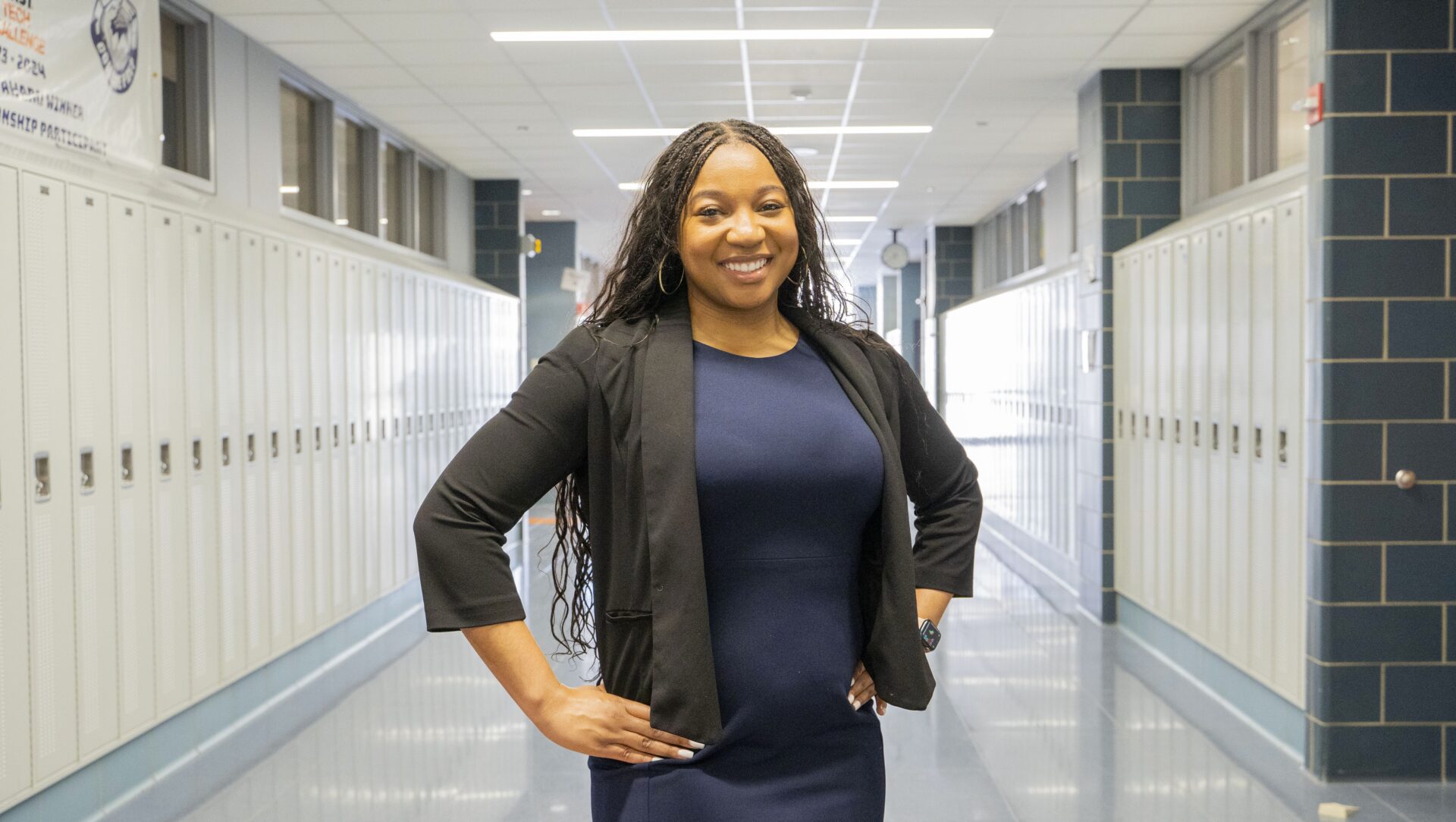A Chicago Public Schools alum, Verneisha Gair is proud to have taken the role of assistant principal at Jones College Prep in 2024. She grew up in a family that valued education, and her perspective was shaped by conversations with grandparents who, despite being denied educational opportunities, instilled in her a deep belief in the transformative power of learning.
After earning a biology degree, Verneisha felt drawn back to her original dream — education. Her early teaching experience at Austin High School was eye-opening. She had expected that all public high schools in Chicago would offer the same resources and opportunities she had as a student at Gwendolyn Brooks College Prep. Instead, she encountered opportunity gaps that would later define her leadership approach.
“I thought I was walking into a system where every student had the same shot,” she recalls. “But the inequities were real — and deeply personal to me.”
When Verneisha joined Jones as an assistant principal, she brought a clear vision: to develop systems of support that enable all students to thrive. One of her proudest accomplishments has been building the Student Success Team, a combination of the Multi-Tiered System of Supports (MTSS) and the Behavioral Health Team (BHT). This team provides academic and social-emotional interventions for students, especially those who might otherwise be overlooked.
“There’s a misconception that because we’re a selective enrollment school, our students don’t need additional supports. That’s simply not true,” she explains. “In reality, families with means often access these supports outside of school. My goal is to ensure every student, regardless of socioeconomic status, has access.”

Assistant Principal Verneisha Gair at Jones College Prep, 2025.
This year, Verneisha’s work with The Fund’s Design Coaching to Implement has helped advance this vision. Initially, she joined the program to improve MTSS implementation. However, through empathy interviews with students — particularly Black male students — Verneisha discovered a deeper issue: a lack of belonging.
Students didn’t discuss curriculum or teaching styles. Instead, they shared stories of feeling out of place — experiences related to socioeconomic status, cultural differences, and a lack of representation.
“They talked about being first-generation students, about never having been downtown before coming to Jones, and feeling isolated when others talked about vacations abroad or going out for lunch,” Verneisha shared. “That’s when we realized that the core challenge was building a sense of belonging.”
Verneisha is using the insights gained from Design Coaching to Implement to develop the Jones Inclusivity Framework. This framework — designed with input from students, staff, and counselors — will serve as a guide for building a school culture rooted in representation, cultural competence, and connection.
This project reflects Verneisha’s philosophy as a leader. “My leadership style is relationship-based,” she says. “It’s about treating people with respect, listening deeply, and leading with a vision for equitable access so students can self-actualize.”
Verneisha’s transformative work at Jones shows how assistant principals work hard to improve students’ educational experiences — just one of the many ways in which they can positively affect their schools. She wants people to understand that assistant principals are more than just administrators. “We’re doing deep, adaptive work every day,” she says. “We may not be the principal, but our touchpoints are everywhere — academic systems, student well-being, culture-building. We’re architects of experience.”